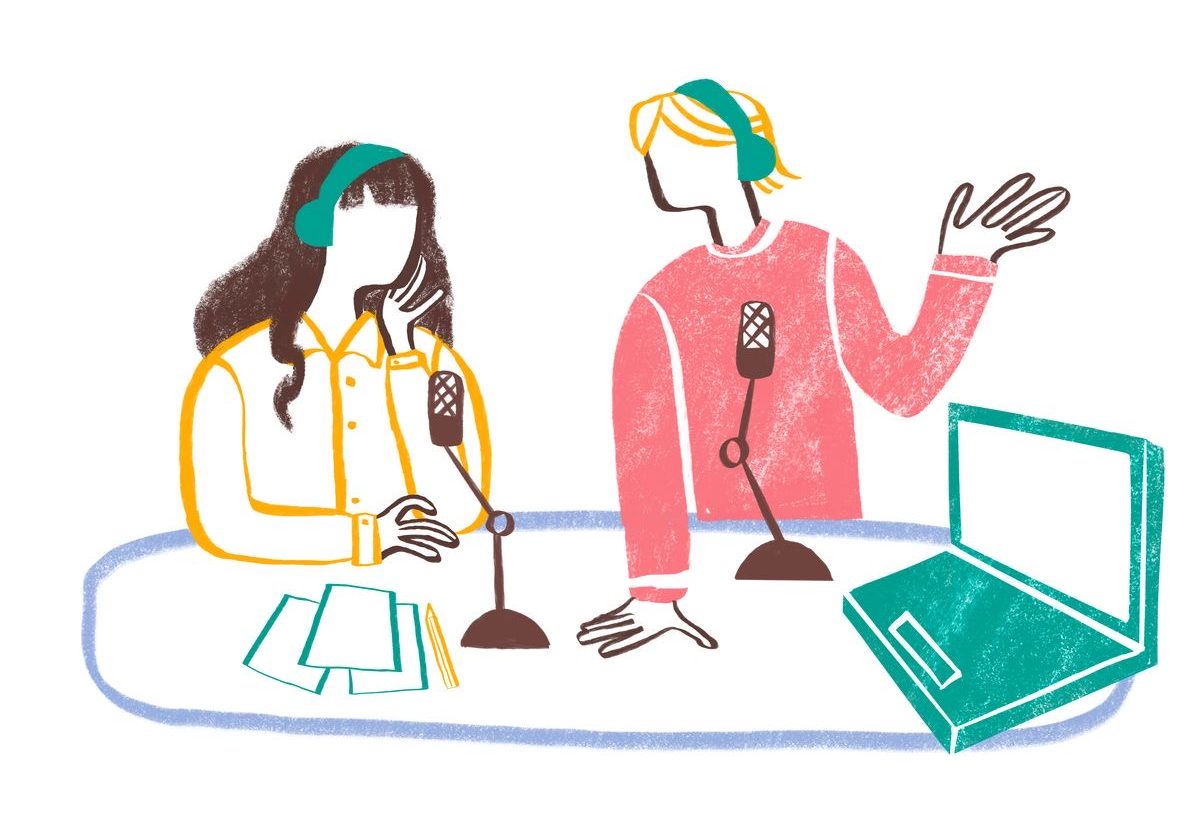Repetitive, mindless content wins every time

Illustrations by Chloe Latour.
I like repetition. I like my schedule. I love doing the same thing day after day, eating the same lunch, and watching the same Youtubers. Are you bored? No, to me it’s reliable and, more importantly, comforting.
I believe it’s this love of familiarity that makes social media addictive for so many people. Not only is there an algorithm ready to serve you content that you personally engage with, but there’s also a physical aspect to duplication. Swipe, scroll and double tap. Combined, these result in an insatiable need for constant consumption.
That’s addictive for consumers and hugely beneficial for the billionaires who run social media platforms, but what does it mean for content creators?
If you’re looking for advice on how to build a following on social media, you’re likely to see one word everywhere: consistency. The algorithm will reward creators who upload consistent content at a consistent rate.
To me, this need for consistency is nothing more than a creative limitation. In order to succeed, you need to have a cohesive identity, and if you falter, you will fall out of favor with the algorithm and your perspective will fail.
The result of this pressure to produce homogeneous content is digital monoculture.
Let’s go back to 2005, when the concept of a “content creator” didn’t exist. The internet was just starting to become widely available, and YouTube was just making its debut. For the first time, anyone can easily create and share video content. This was also the time when Apple computers began to have built-in webcams and video editing software, allowing the entire video production process to be completed on a laptop.
Producing content has become easier these days. Almost everyone carries a high-definition camera in their pocket that instantly uploads content to the web. How do you stand out in a world where anyone can create content? By the same.
Create the same videos over and over again. If you’re a chef, every recipe you share has to be shot and edited exactly the same way every time. Even if you’re an artist working in a completely different genre and medium, your videos still have to follow a repetitive format. When everyone starts to create, the creativity behind it disappears.
If you do want to try something new, you risk losing any traction you’ve gained and potentially saying goodbye to all the followers you’ve worked so hard for.
As someone who loves to be creative, the thought of being shoehorned into a restrictive niche terrifies me. But for many people who do want to make a living from their creativity, building a following on social media is almost essential.
Journalist Taylor Lorenz recently made a video about the resentment prevalent in Instagram videos. There is a whole category of video creators who complain about having to produce videos to stay relevant in the algorithm.
This is similar to what I see online – people are tired of having to obey. I fell in love with the internet in the early days of YouTube because it felt like everyone was just making fun content for fun. Social media has become so intense now that there is no longer any fun or creativity on these platforms.
While I’m not a content creator, I do enjoy making content. I made videos for a business’s Instagram account and spent a summer trying to be an amateur food reviewer. Not surprisingly, none of these gained any real traction. But as an experiment, I created the lowest quality content possible – clips stolen from comedy TV shows. Within a few days it had a thousand times more views than any of my other videos.
It made me realize that people didn’t want to see what I was trying to create. The lowest common denominator, something that’s easy to digest and appeals to anyone, always wins.
So what’s the solution? Maybe just turn off your phone, or at least support creators who create interesting and original content. But ultimately, one person’s support does nothing for an algorithm that thrives on unoriginal and duplicate content.
The best way to create change for yourself is to create art for its own sake. Forget views, interactions, and followers – focus on the creativity of what you’re doing. I know that the less I focus on what other people think of me, the happier I will become.